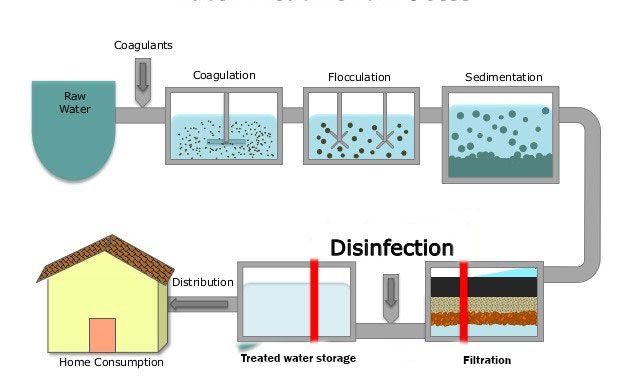Why a Water Filtration System Is Important for Clean, Safe Water
Accessibility to clean, risk-free water is a basic human right and a cornerstone of public health. A water purification system stands as a critical service to minimize these risks, making certain that neighborhoods and people can access safe drinking water.
Value of Tidy Water
Access to clean water is a fundamental necessity for human health and well-being. Contaminated water can lead to serious health issues, including gastrointestinal illnesses, cholera, and dysentery, particularly in vulnerable populaces such as children and the senior.
Additionally, clean water is essential for sanitation and hygiene techniques, which are important in preventing the spread of infectious conditions. Appropriate water system supports correct hygiene facilities, advertising a healthier setting. Furthermore, access to secure water influences socioeconomic elements, as it makes it possible for areas to engage in agricultural and commercial tasks, eventually adding to economic development.
In several regions, the lack of tidy water intensifies destitution and inequality, additional preventing development toward sustainable development objectives. Guaranteeing accessibility to tidy water is not only a public wellness vital yet likewise a keystone for social equity and economic development. Initiatives to enhance water quality and framework have significant advantages, promoting healthier neighborhoods and boosting high quality of life.

Usual Impurities in Water
Making certain the schedule of tidy water is weakened by various contaminants that can jeopardize its security and quality. The visibility of pathogens, such as bloodsuckers, viruses, and bacteria, positions considerable health risks, particularly in locations lacking adequate hygiene. These microorganisms can bring about waterborne illness, resulting in extreme illness and even fatality.
Chemical pollutants also present an important worry. Heavy steels, consisting of arsenic, mercury, and lead, usually go into water products with commercial discharges or corroded plumbing. These materials can gather in the body with time, resulting in lasting health problems such as neurological damages and developing problems.
In addition, agricultural overflow introduces pesticides and plant foods right into water supply, which can disrupt environments and adversely impact human health. Nitrates, typically discovered in plant foods, can trigger severe problems like methemoglobinemia, specifically in babies.
Advantages of Water Filtration Equipments
Identifying the critical need for safe drinking water, water filtration systems offer a myriad of benefits that enhance public health and wellness and environmental sustainability. Mostly, these systems efficiently remove unsafe impurities, consisting of germs, infections, hefty metals, and chemicals, making sure that the water taken in is without contaminants and pathogens. This reduction in impurities significantly lowers the threat of waterborne conditions, advertising total area health and wellness.
Along with health and wellness benefits, water purification systems add to ecological sustainability by lowering reliance on mineral water, which usually produces excessive plastic waste. By using a filtration system, houses can reduce their carbon footprint and contribute to an extra lasting environment. These systems can enhance the preference and odor of water, making it more tasty for everyday consumption.

Different Kinds Of Purification Methods

One usual technique is reverse osmosis, which makes use of a semi-permeable membrane layer to different water from liquified contaminants and solids. This process successfully lowers contaminations, consisting of hefty steels and chemicals. Another widely made use of strategy is ultraviolet (UV) sanitation, which uses UV light to counteract microorganisms and infections, providing them safe without the usage of chemicals.
Turned on carbon purification is an additional prominent method, click for more utilizing carbon to adsorb natural compounds, chlorine, and unpleasant odors, enhancing taste and odor top quality. Purification, a procedure that entails boiling water and condensing the heavy steam, effectively gets rid of minerals and impurities however may require more power compared to other approaches.
Ion exchange is frequently utilized to soften water by changing calcium and magnesium ions with salt or potassium ions. Each method has its benefits and constraints, making it important to recognize their functionalities and efficiency in attending to details water high quality issues check it out - Water Purification System. Inevitably, picking the appropriate purification technique is important for ensuring safe and clean drinking water
Picking the Right System
Choosing a suitable water filtration system requires mindful factor to consider of various variables, consisting of the certain impurities existing in the water system, the volume of water needed, and the desired filtration technique. First, it is imperative to carry out a water quality test to recognize pollutants such as germs, heavy metals, or chemical pollutants. This details will assist you in choosing a system that successfully targets those particular contaminations.
Next, evaluate your family's day-to-day water consumption to figure out the system's ability. Systems are available in various sizes, from point-of-use filters for alcohol consumption water to whole-house devices that purify all water entering your home.
Furthermore, take into consideration the filtration approach that best fits your needs. Reverse osmosis is very reliable for eliminating a wide variety of pollutants, while UV purification is superb for getting rid of bacteria.
Final Thought
In verdict, the implementation of water filtration systems is crucial for guaranteeing access to safe and clean water. These systems effectively remove dangerous impurities, thereby minimizing the danger of waterborne illness and enhancing public wellness. They add to ecological sustainability by lessening dependence on bottled water. By recognizing the importance of tidy water and the advantages of different purification methods, areas can make enlightened decisions to protect their health and advertise socioeconomic stability.
Recognizing the essential requirement for secure drinking water, water filtration systems provide a myriad of advantages that enhance public health and environmental sustainability.In enhancement to health and wellness advantages, water purification systems add to environmental sustainability by minimizing reliance on bottled water, which commonly generates extreme plastic waste. Ultimately, the adoption of water purification systems is an aggressive step toward making sure tidy, secure water for future check here generations while safeguarding public health and wellness and the setting.
Selecting a proper water filtration system requires cautious consideration of different variables, including the particular impurities existing in the water supply, the volume of water needed, and the wanted filtration approach.In conclusion, the implementation of water purification systems is vital for making sure access to secure and clean water.
Comments on “Choose the Right Water Purification System for Your Family Demands”